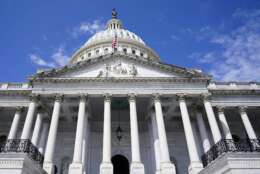Budget
-
After months of back and forth, the legislation that eventually came to be known as the Inflation Reduction Act is a done deal. The House passed the huge reconciliation bill on Friday afternoon on a party line vote.
August 15, 2022 -
It’s been three years since the Foundations for Evidence-Based Policymaking Act became law and agencies are using it to plan their 2024 budget requests.
August 11, 2022 -
The Postal Service is starting to see the impact of major reform legislation on its finances, but still expects to still raise mail prices again at the start of next year.
August 09, 2022 -
Fiscal 2024 budget guidance from the Office of Management and Budget tells agencies to invest in rebuilding the workforce, the move toward zero trust and several other management priorities.
August 09, 2022 -
Programs at HHS, USDA and the Education Department remained fairly steady during continuing resolutions, GAO found.
August 09, 2022 -
The Inflation Reduction Act would give the Postal Service $1.29 billion to purchase electric vehicles, and $975 million to GSA to support emerging sustainable technologies.
August 09, 2022 -
Just yesterday afternoon, the Senate gave final passage to the Inflation Reduction Act after a full weekend of votes on amendments.
August 08, 2022 -
The Bipartisan Infrastructure Law includes the single largest investment of water infrastructure ever in federal government, and the EPA wants to get the funds out appropriately.
August 04, 2022 -
If national security and national economic competitiveness are driven by new technology than the U.S. is at risk of falling behind.
August 03, 2022 -
The Senate Appropriations Committee is proposing $850 billion for national security.
August 02, 2022 -
The AGILE Procurement Act in the Senate intends to make it easier for the government to buy commercial goods and services.
August 02, 2022 -
Another continuing resolution on Oct. 1 is looking inevitable, says WTOP Capitol Hill correspondent Mitchell Miller.
August 01, 2022 -
Two senators from opposite parties recently urged the Federal Trade Commission to investigate the phenomenon of TikTok.
August 01, 2022 -
The budget reconciliation package announced Wednesday night by Senate Majority Leader Chuck Schumer and Sen. Joe Manchin (D-W.Va.) would give the IRS $80 billion over the next 10 years, with a focus on tax enforcement.
July 28, 2022 -
The Technology Modernization Fund received $100 million from the House for fiscal 2023, which is $200 million below the Biden administration’s request.
July 25, 2022













